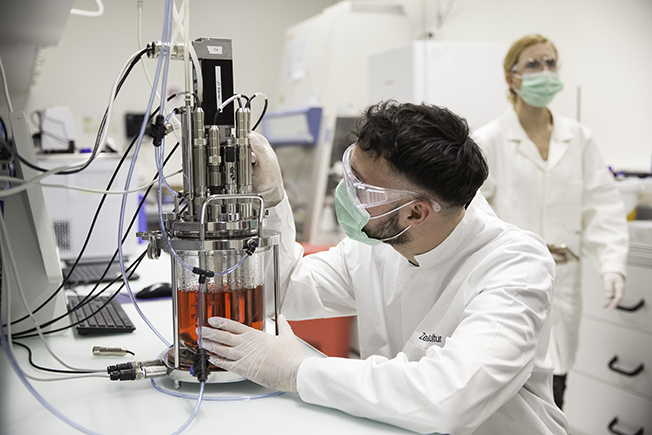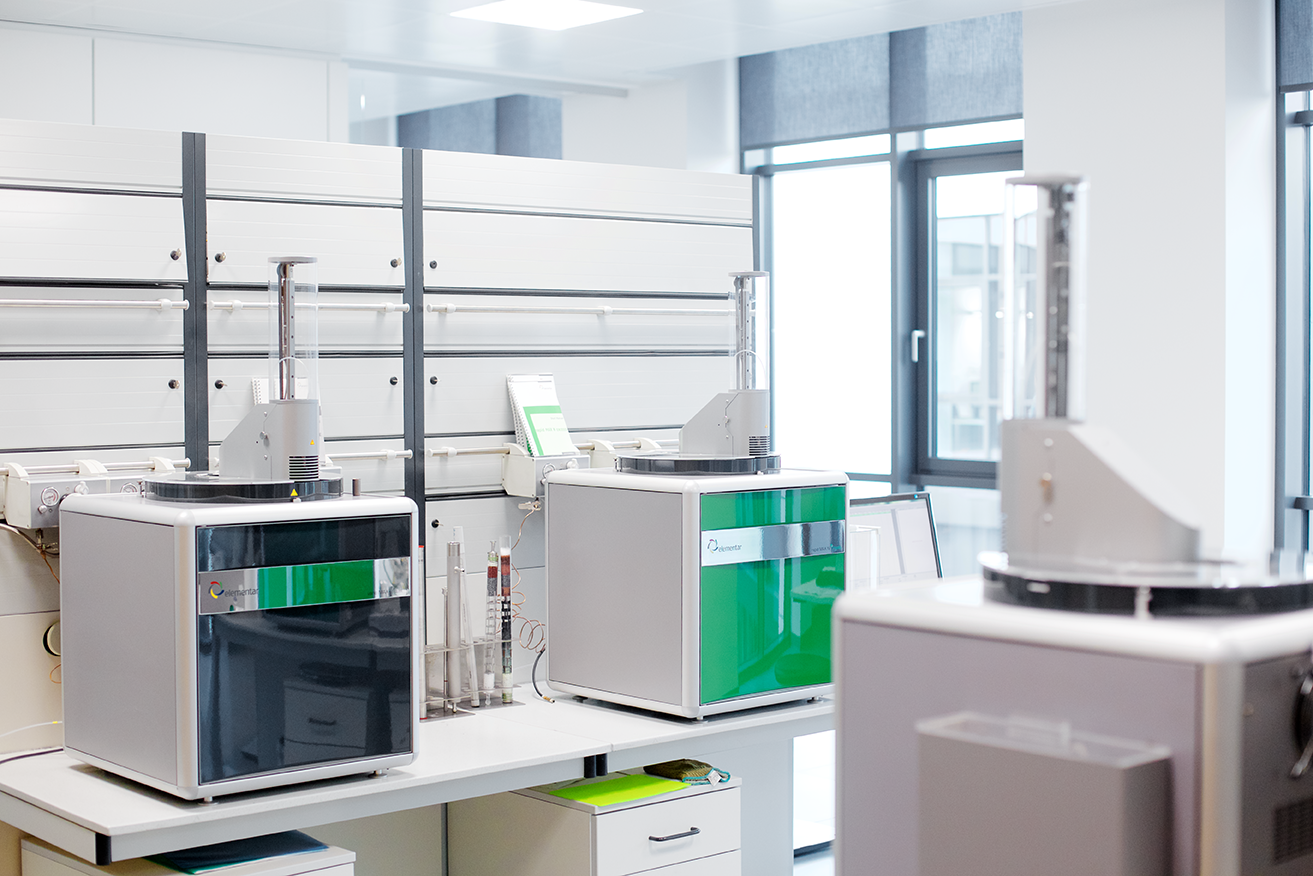

Cutting-edge plant-based expression and production of proteins
Here, we look at how SupraVec technology from Leaf Expression Systems greatly enhances the level of protein that can be obtained during plant transient expression and why it’s a significant leap forward, providing improved protein yields and economics

With 40% of European consumers now actively reducing their consumption of animal-based food products, we are all looking at our personal impact when it comes to pursuing a more sustainable and ethical diet. Bloomberg Intelligence predicts that the global market for plant-based alternatives will continue to grow explosively from US$29.4 billion in 2020 to US$162 billion by 2030, and with that growth comes the need for better infrastructure, cheaper manufacturing systems, and innovative ingredient development.
Molecular farming uses plants as bioreactors, where plants are engineered to produce recombinant proteins such as those typically found in animals. For example, a host plant can be used to produce dairy proteins that are identical to those found in cow’s milk, paving the way for sustainable, ethical, and antibiotic-free and animal-free dairy produce. The technology works by inserting the DNA code for the protein of interest into the plant. The plant will subsequently produce the protein that is extracted and purified. Using this approach, we can accurately predict yields and therefore costs and scalability, which can be used to inform and achieve the production targets for the alternative protein industry. On a larger scale, transgenic plants can be engineered where the protein of interest is expressed in the seeds, so ensuring a continuous supply of protein without further engineering.

Two of the key issues faced by food companies working within the alternative protein industry (specifically cultivated meat) are supply chains and the cost of production. Growth factors are needed to support cell growth in serum-free media and are therefore essential ingredients for production of cultivated meat. Although they are needed at relatively low concentrations within the growth media, the supply and cost of growth factors is predicted to be a significant hurdle for the cultivated meat industry if it is to scale up. Current systems alone cannot meet the projected supply needed for the industry to grow, so it is therefore necessary to develop new production platforms and innovations to fulfil the future demand for volume and to meet the lower costs needed.
Leaf Expression Systems has been working in molecular farming since 2016, expressing proteins in the leaves of plants and providing plant biotechnology services to the life sciences and agricultural sectors.
Over recent years, however, the company has found that its technology and knowledge is in demand for a different industry with many of its partners pioneering the alternative protein sector looking for innovative solutions to progress their research and product development by using the power of plants.

Replicating taste and texture
Another significant issue for cultivated meat producers is how to replicate the texture and taste of ‘real’ meat. Fats play a vital role in the structure and flavor of meat, and while we’ve learned how to grow the animal cells that make up the majority of what we know as ‘meat’, we haven’t yet perfected how to make the meat behave like animal tissue. When compared with cows, chickens or pigs that move and graze, lab-grown meat is a sedentary beast without the intrinsic muscle structure that contributes to the texture and taste of its meat.
For its own part, Leaf is currently conducting R&D into creating plant cell cultures that can express fat molecules, like those traditionally found in animal tissues, which can then go on to be used in the production of lab-grown meat. Introducing these fats to cultivated meat adds the much-needed taste, smell and texture that is so important for creating the flavor and experience we associate with consumption of traditional meat products.
.jpg)
Why plants?
As well as offering a solution to the demand for alternative protein production infrastructure, plants are an obvious choice and go hand-in-hand when striving to create a kinder and more environmentally conscious food source. But plants offer far more than ‘green marketing’ – they offer real credible answers to some of the problems faced by the food industry.
Plants are simple to cultivate. They do not require expensive, highly intricate bioreactors, filled with complex media; each plant is a mini ‘bioreactor’ and just needs access to light, water and nutrients. Traditionally, these nutrients would come in the form of soil but with advances in technologies such as hydroponics and aeroponics to deliver those nutrients, plants no longer need soil to grow. This makes plants a very economical way to generate large quantities of proteins such as growth factors.
Plants do not require expensive, highly intricate bioreactors, filled with complex media; each plant is a mini ‘bioreactor’ and just needs access to light, water and nutrients
Unlike E. coli, plants are a eukaryotic system, which means their cells have all the necessary machinery to undertake the complex processing that some protein molecules require for full functionality.
Finally, expressing proteins in plants is very fast. As soon as you have the gene that encodes your chosen protein in a piece of circular DNA called a ‘plant expression vector’, it takes only a few days to confirm that your protein can be produced in the plant and how much you are able to produce per plant.

How it works
Leaf uses its proprietary expression technology, SupraVec, to produce proteins such as growth factors. SupraVec allows for the rapid simultaneous production of multiple gene products in a controlled and coordinated manner within the tissues of plants. Using gene synthesis and modular vectors, new products can be produced at speed and on a large scale. The plant that Leaf uses to make its proteins is called Nicotiana benthamiana, which is a very well-studied species that is fast growing and easy to infiltrate. Once inside the plants’ leaves, the bacteria can transfer the DNA encoding the protein into the plant cells where it is ‘transcribed’ into RNA and ‘translated’ into protein. This process occurs over a few days and after three to six days, the leaves are harvested and the proteins are extracted.
More than protein expression
The team at Leaf are all skilled plant biotechnologists and have the technical and scientific knowledge to progress research and development into the future of food, offering services not just in plant-based expression but also plant cell-based production of plant-derived flavorings and colorings and creation of novel plant cell lines for over-expression and production of key dietary proteins.
For more information about the products from Leaf Expression Systems, please click here
If you have any questions or would like to get in touch with us, please email info@futureofproteinproduction.com


%20ILVO%202.jpg)

.png)

